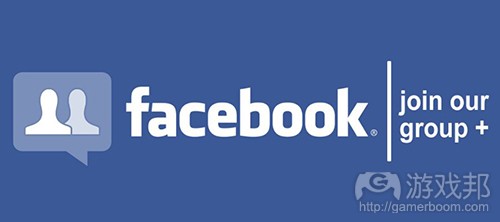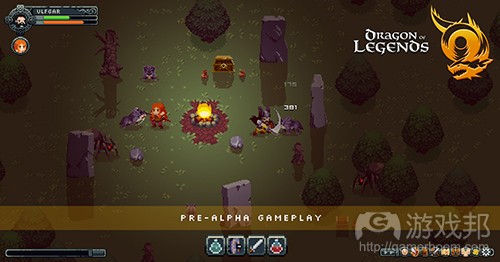列举独立开发者的零预算营销方法
作者:Albert Palka
一般来说,作为初创企业的CEO或联合创始人,你必须自己努力争取客户并出售产品。你的公司没有现成的资金,也没有投资者的支持,除了自己和自己的想法,你一无所有。你还得自己处理市场营销和PR事件。那么在游戏领域中我们该如何理解这一概念?
作为一名独立开发者意味着许多事情你都要亲力亲为,不能指望他人施以援手。那么你该如何在零预算的情况下推广自己的游戏呢?
1.Facebook群组
Facebook依然是一个具有可行性的平台。Zuckerberg最终还是为这个平台找到了盈利出路。他的做法就是,如果粉丝专页管理员不付费,该粉丝专页的追随者就无法看到页面内容。Facebook此举令相关页面的曝光度和用户粘性大受影响。
解决方法
尽管粉丝专页已经不再像过去那样管用,人们还是可以发现该网站可利用的“漏洞”——Facebook群组。群组不但可为你的内容提供更高曝光度(群组中每个人都能看到你发贴),还可以提醒你群组中某人发布了内容。
Facebook目前是我一个名为youtubeforindies.com项目的最大用户获取渠道。我每次在群中发布内容时都能收获足够多的评论,从而令我的贴子一直在页面置顶。但要注意,有价值的内容才可能一直置顶,无关紧要的内容则不然。
我会推荐什么类型的Facebook群组呢?以下就是一些可供你借鉴和参考的群组:
Indie Game Developers – 44415人
Indie Game Chat – 13046人
Independent Game Developers – 1733人
Indie Game Developers ~Sunshine~ – 1312人
Indie Games Advertising – 1947人
The Gaming Society – 14185人
2.Twitter事件
Twitter主要在美国最受欢迎,但游戏是一种全球性的行业,开发者也可以有效利用这一渠道。但因为每天都有无数人使用Twitter,所以大家很难听到你的声音。
解决方法:
每天至少都会发生一件与游戏开发者相关的“事件”。你所要做的就是在自己的发布内容中添加该事件的标签。例如#screenshotsaturday,#wipwednesday,#motivationalmondaygd, #indiedevhour等等。
Thrive Games最近正在开发他们的首款超级笨蛋游戏《Dragon of Legends》,因为经常参与上述提到的事件而收获了将近4500名粉丝。该公司主设计师大量时间和精力才令该Twitter帐号达到今天的成就,但现在他们已经有了大量可交流互动的粉丝群,所以之前付出的一切都是值得的。
注:不要忘了使用Tweetdeck,以免自己的推文被淹没!
3.与大众交流
现在假设你的游戏已经获得了一些吸引力。人们开始写信给你,在各种网站和社交媒体上发布相关评论。那你该怎么做?
多数开发者,尤其是独立开发者此时并不会有什么举动。他们不想浪费自己宝贵的时间,但这实际上无异于错失获得积极粉丝群体的良机!
解决方法:
我的一名好友DroneLocker曾做了一款名为《Antumbra》的游戏。他在NewGrounds上几乎有问必答,会回复每一条私信和评论。他还会答复每一卦邮件,推文并且会在照顾家小的同时保持在Facebook上的活跃度。
结果?这款游戏在IndeDB上连续5周稳居榜单前10名,现在仍然表现强劲。与其他游戏相比,它的玩家体验频率更高。它也是Kongregate本月最欢迎的游戏之一,除此之外,Markiplier和不少YouTube用户也提到了这款游戏。
因为人们对这款游戏产生了极大的兴趣,DroneLocker逐步投入开发《Antumbra 2》——如果不是之前耗费多时积极与粉丝互动从而产生巨大影响力,他永远不会想过再开发这款游戏续作。
4.参考创业领域的案例
如果上述3个想法还不够,不妨去找找来自创业领域的类似案例,也许你可以调整他们的做法将其运用于自己的营销计划。
记住,自主营销需要大量的执行时间,但却无需耗费预算,并且可能收获极为有效的成果。(本文由游戏邦编译,转载请注明来源,或咨询微信zhengjintiao)
Marketing games with no budget
by Albert Palka
Last week I wrote an article about Doing Things That Don’t Scale, which briefly discussed achieving marketing success with no marketing budget at all. Unfortunately, I didn’t explain the subject thoroughly enough and I’m going to do it today!
Paul Graham, startup guru from YCombinator – the most prominent startup accelerator in the world back in 2013 wrote an article where he coined the term “Doing Things That Don’t Scale.” It’s hard to find a good definition of this term, but I found a well-written answer on Quora written by Anil Alur, co-founder of GoMowgli:
… When (he) says “do things that doesn’t scale” he means as startup you will have to do lot things all by yourself, which is not required in the long run. …
Basically, as a CEO/Co-founder of a newly founded startup you have to work hard on your own to acquire customers and start selling your product. There’s no money on the table, there are no investors to back you up; it’s just you and your idea. And you have to do marketing and PR on your own. So how can we translate this concept into our gaming world?
Instead of CEOs we have Lead Developers or studio Co-Founders or even solo indie developers. Doing Things That Don’t Scale means you as a developer have to put in work and start making things happen instead of waiting for people to come to you. What are the examples of DTTDS? How do you market your game for $0?
1. Facebook groups
Facebook, despite what many people say, isn’t dead. Zuckerberg simply found a way to finally monetize his platform. What he did was he cut discoverability and user engagement by not showing fanpage followers the content if the fanpage admins aren’t paying.
Solution:
Although fanpages aren’t as useful as they used to be, people found a “loophole” – Facebook groups. Groups not only provide your content higher visibility (every person inside a group will see your post), but you also get notified when someone posts his stuff there.
Facebook is currently my biggest user acquisition channel for a project youtubeforindies.com – YouTube guides, tips and the biggest contacts’ list on the Internet delivered every Thursday directly to your inbox.
Every time I post something on the groups I follow I get enough comments to keep my post at the very top of the page. However, only valuable content stays there so cat memes are a big nono.
What type of Facebook groups am I referring to? Well, here are a few that might get you started and give you an idea of what I’m talking about.
Indie Game Developers – 44,415 members
Indie Game Chat – 13,046 members
Independent Game Developers – 1,733 members
Indie Game Developers ~Sunshine~ – 1,312 members
Indie Games Advertising – 1,947 members
The Gaming Society – 14,185 members
2. Twitter events
Twitter is old and mostly popular in the US, but since games are a global business, developers might find it super useful. However, due to an enormous amount of people using it on a daily basis it’s super hard to be heard.
Solution:
Almost every day there is at least one “event” dedicated to game developers. What you do is you post your content adding event’s hashtag. For example #screenshotsaturday, #wipwednesday, #motivationalmondaygd, #indiedevhour and so on.
Good friends of mine, Thrive Games, who are currently working on their first super dope game called Dragon of Legends acquired almost 4,500 followers by attending plenty of the events mentioned above on a regular basis. It took a lot of Nathan’s, Thrive’s Lead Designer, time and effort to get the Twitter account where it is today, but it was worth it because now they have a big crowd to communicate with.
Also, don’t forget to use Tweetdeck to not get buried in Twitter feed messages!
3. Start talking with people
Let’s say your game starts getting some initial traction. People start writing to you, posting comments on various sites and Social Media. What do you do?
Well, most of the developers, especially those working solo, don’t do anything. They don’t want to waste their precious time, but what they are REALLY doing is missing a huge opportunity to gain an incredibly active fan base.
Solution:
Another good friend of mine, DroneLocker, made a game called Antumbra. He literally answers every single private message and comment on NewGrounds. He also answered every e-mail, tweet and tried to be extremely active on Facebook while taking care of his wife and kid.
Effects? Top10 game on IndeDB 5 weeks in a row and still going strong. Incredibly high playrate compared to other games. One of the most popular games on Kongregate this month, and on top of that – his game was noticed by people like Markiplier and dozens of other YouTubers.
Because of the enormous interest in his game, DroneLocker is slowly working on Antumbra 2 – a game he would’ve never created if it wasn’t for his countless hours spent on answering every single message online.
4. Interesting examples from the start-up world
If the last 3 ideas isn’t enough, check out some of the Doing Things That Don’t Scale examples from the Start-Up world. Maybe you could tweak them and use for your marketing campaign?
Doing Things Don’t Scale worked wonders for Buffer
First 2,000+ customers acquired thanks to DTTDS for Groove
Stanford Start-Up course was amazing!
HelpDesk had to manually enter data, but it paid off!
Remember, DTTDS strategies take a lot of time to implement, but they cost you nothing and could be extremely effective as shown in the examples above. You just have to figure out a way to apply this process to your marketing strategy.(source:gamasutra)
上一篇:如何创造富有沉浸感的游戏入口
下一篇:优化游戏体验并实现盈利的技巧










































 闽公网安备35020302001549号
闽公网安备35020302001549号